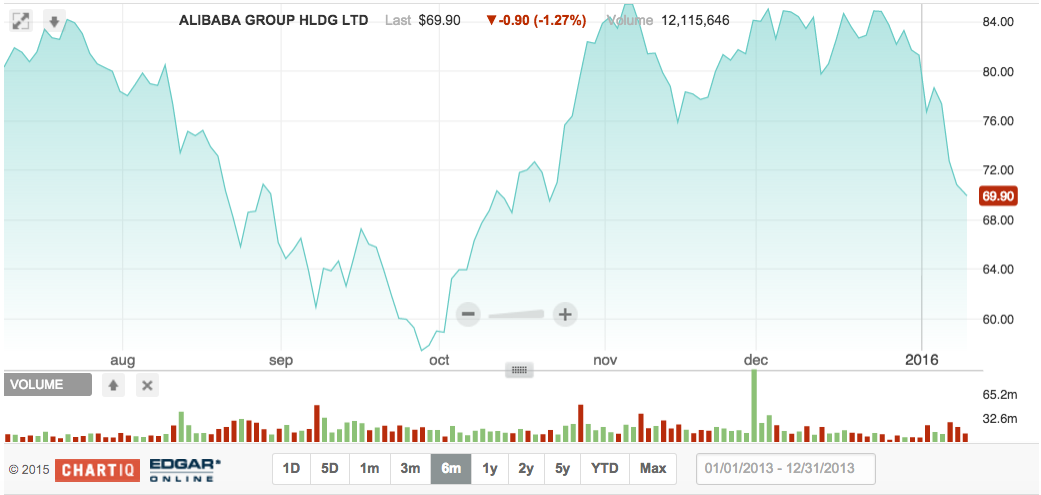Turmoil in the Chinese Markets and Alibaba
Many tech stock investors are probably aware of the e-commerce giant, Alibaba (NYSE: BABA), which focuses on business to business e-commerce in China. While Alibaba has demonstrated promise with its past performance and its future initiatives, the recent turmoil in the Chinese markets should give investors some pause.

outlined several ways in which the company plans to expand in 2016, which include a focus on expanding e-commerce in rural areas of China, focusing on providing services in top-tier cities and expanding its global import business. Alibaba’s announcement came during the same week that Chinese stocks plunged. On Jan. 7,
by mid-morning while Chinese stocks in general plunged by 7 percent. Trading was closed after just 29 minutes because of the plummeting market.
In Aug. 2015, the Chinese economy fell, and the economic downturn negatively impacted Alibaba at that time. The company reported earnings that missed expectations and announced a planned $4 billion stock buy-back as a result. While Alibaba rebounded later in the fall, the Chinese market and economy have been demonstrably volatile.

Recent Performance and Comparison With Competitor JD.com
In the past year, Alibaba has experienced revenue growth of 23.1 percent, which is higher than the average of 15 percent for the industry. The company’s net operating cash flow was significantly higher than that of other tech companies, increasing by 140.33 percent. The company has invested significantly towards its goal of growth in the past year, making acquisitions valued at around $11 billion.
Alibaba is the top company in the Chinese tech market, followed by its competitor, JD.com (NASDAQ: JD), which, while in second place, is quickly rising. Like Alibaba, JD’s stock prices plunged on Jan. 7, falling by 10 percent before trading was halted.











Leave A Comment